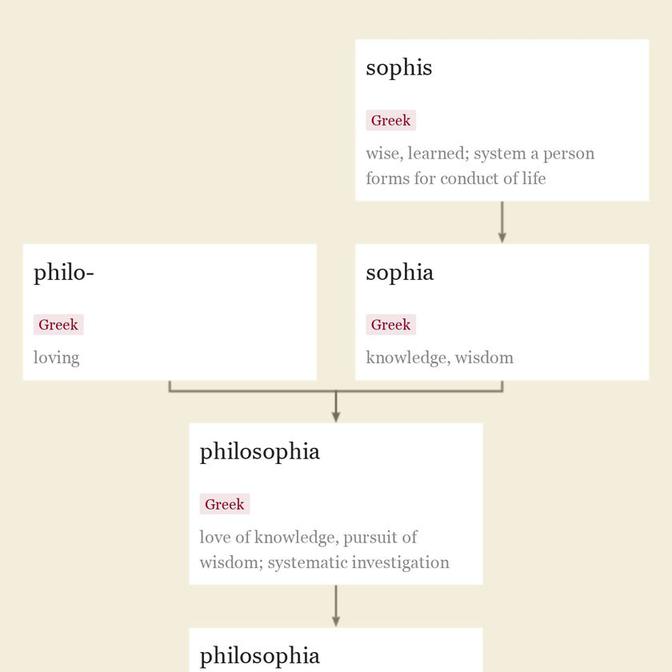philosophist n.
"
Entries linking to philosophist

c. 1300, philosophie, "
From mid-14c. as "
Nec quicquam aliud est philosophia, si interpretari velis, praeter studium sapientiae; sapientia autem est rerum divinarum et humanarum causarumque quibus eae res continentur scientia. [Cicero, "De Officiis"]
In 1744 he made an unsuccessful attempt to obtain a professorship at Edinburgh; having failed in this, he became first a tutor to a lunatic and then secretary to a general. Fortified by these credentials, he ventured again into philosophy. [Bertrand Russell, writing of Hume, in "A History of Western Philosophy," 1945]
[Philosophical problems] are, of course, not empirical problems; but they are solved through an insight into the workings of our language, and that in such a way that these workings are recognized — despite an urge to misunderstand them. The problems are solved, not through the contribution of new knowledge, rather through the arrangement of things long familiar. Philosophy is a struggle against the bewitchment (Verhexung) of our understanding by the resources of our language. [Ludwig Wittgenstein, "Philosophical Investigations," 1953]
word-forming element meaning "
Variant -ister (as in chorister, barrister) is from Old French -istre, on false analogy of ministre. Variant -ista is from Spanish, popularized in American English 1970s by names of Latin-American revolutionary movements.
also philosoph, "
updated on May 21, 2020